Anti-Muslim Racism

- Anti-Muslim racism is the manifestation and expression of discrimination against Muslims and those racialized as Muslims. It is exhibited in Canadian society through education, policing, immigration, health, politics, and other areas.
- Anti-Muslim racism is defined as “fear, prejudice and hatred of Muslims or non-Muslim individuals that leads to provocation, hostility and intolerance by means of threatening, harassment, abuse, incitement and intimidation of Muslims and non-Muslims, both in the online and offline world. Motivated by institutional, ideological, political and religious hostility that transcends into structural and cultural racism which targets the symbols and markers of being a Muslim.” (Kanji, 2017).
- The term “Islamophobia” is often used to describe anti-Muslim racism, but can be considered problematic and offensive due to its connotations of a psychological disorder. The word “phobia” refers to an “uncontrollable, persistent, excessive, irrational fear.” Characterizing individuals as Islamophobes implies that they are "insane or irrational” which hinders constructive discussions and displays anti-Muslim hate as a minority condition.
Perspectives on anti-Muslim racism
“To call discrimination against Muslims a ‘phobia’ obscures what needs to be highlighted: discrimination and violence against Muslims. Systemic, pervasive and ideologically rooted discrimination of Muslims can be traced back to the colonization of the Middle East and North Africa region, and are now reproduced in the contemporary era and most definitely do not constitute a ‘phobia’.”
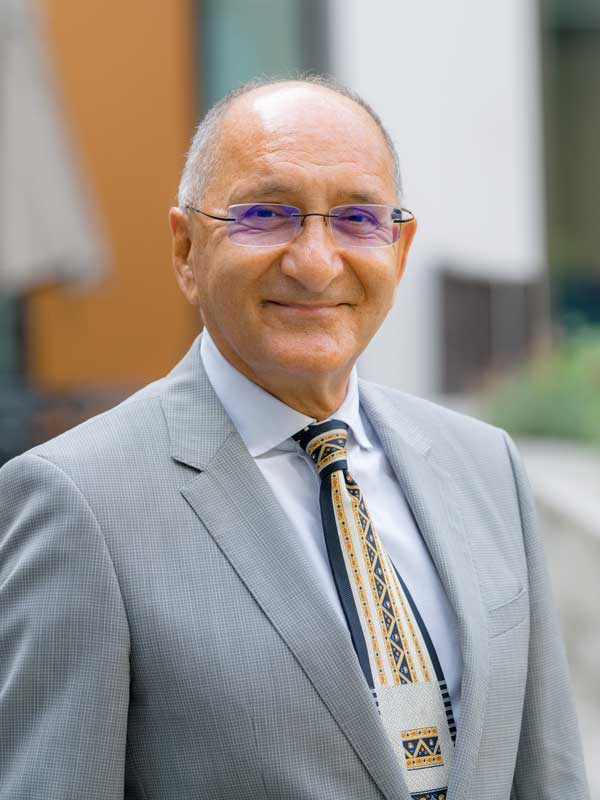
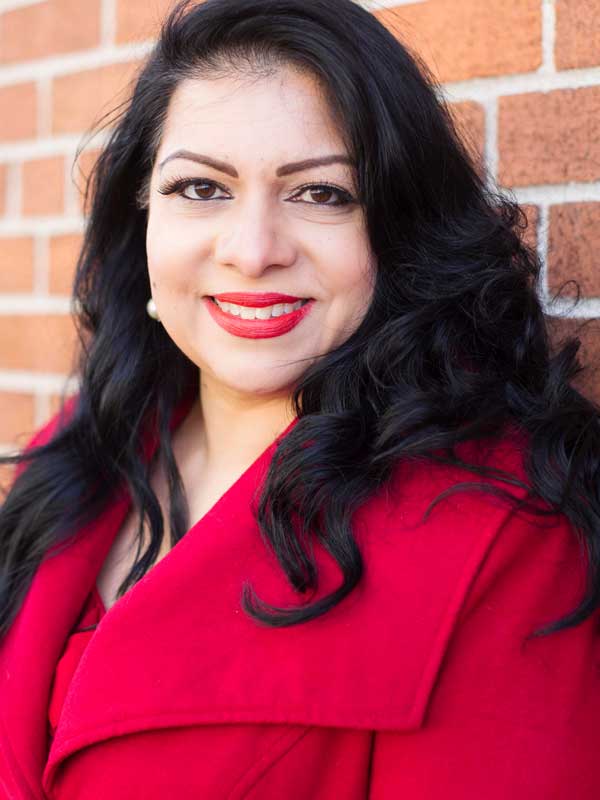
“I am going to expand it [definition of Islamophobia] to include the way that that fear and hatred translates into individual, ideological or systemic practices, and those practices are taking place within power relations in society and work to shore up the logic of those relations of power… If we envision a framework, like an iceberg, what we see at the tip are the kinds of individual actions that most people would associate with Islamophobia… What’s below the water in that iceberg are the ideologies that are supporting and rationalizing those actions.”
Learn more by listening to the TorontoMet Today podcast on Islamophobia 101 part 1 and part 2 (external link) .
“Islamophobia is an unfounded or disproportionate fear or hatred of Islam or Muslims or people perceived as Muslims that leads to violence or systemic discrimination… Islamophobia is often gendered, reinforcing views of patriarchy and men as violent terrorists and women as subjugated victims. It is also intersected with other forms of racism. Black Muslims have many more dimensions they must face than Asian Muslims, for example.”
Learn more by watching Generous Futures: Combating Islamophobia.
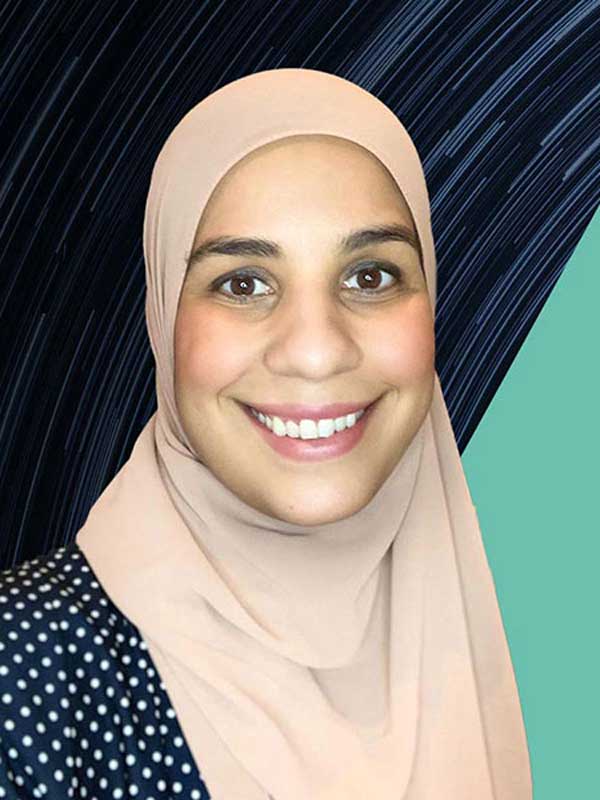
What is Islam?
- Islam is a monotheistic religion, meaning that Muslims believe in only one god (Allah).
- Islam is one of the three major monotheistic (Abrahamic) religions, alongside Christianity and Judaism.
- Islam’s holy book, the Qur’an, is considered by Muslims to be divine revelation. Additionally, Islam has a body of sacred literature known as Hadīth. Hadīth could be translated as “report,” “account,” or “narrative” which preserve in writing the words and deeds of the Prophet Muhammad (peace be upon him), whose behaviour all Muslims are encouraged to emulate.
- There are two main branches of Islam: Sunni and Shiite. Of the world’s 1.8 billion Muslims, 85% are Sunni and 15% Shiite. Both branches share the fundamental beliefs of religion, yet differ in ritual, laws, doctrines and religious organization.
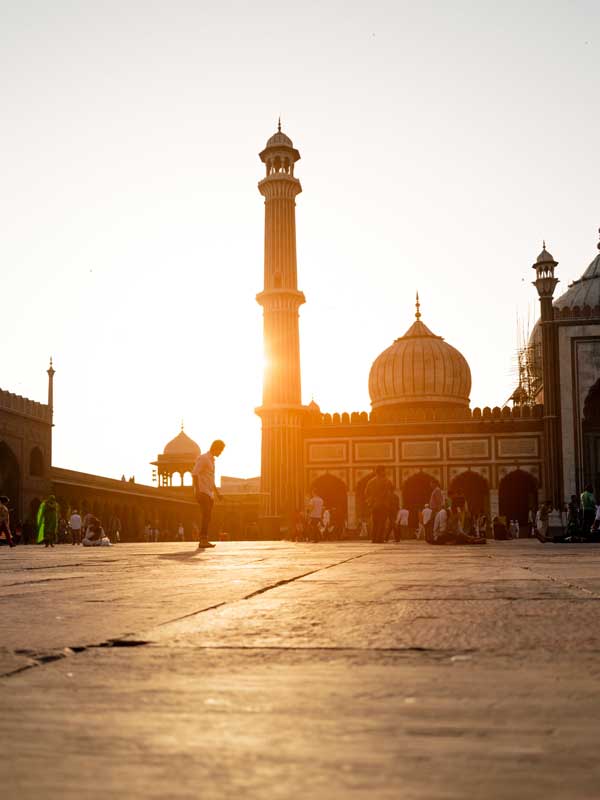
Five pillars of Islam
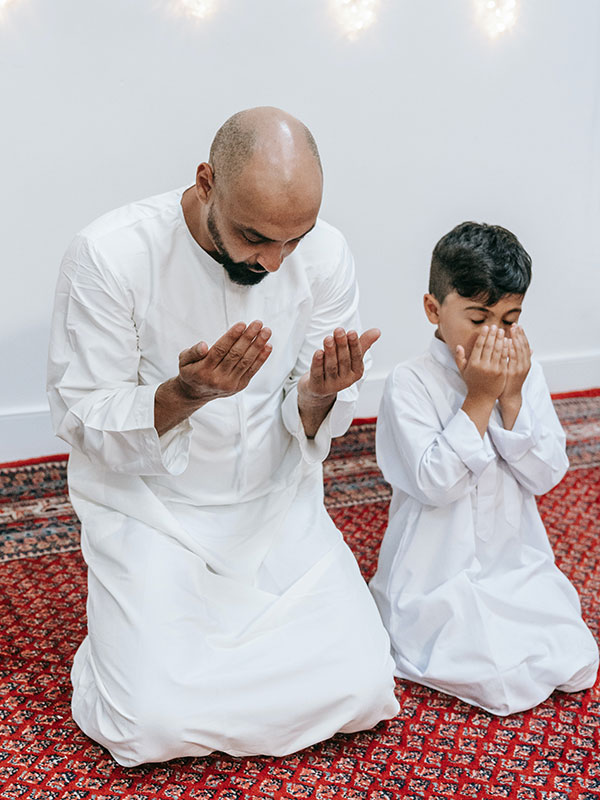
- Declaration of faith (Shahada): To declare one’s faith in God (ALLAH) and belief in Prophet Muhammad (PBUH).
- Prayer (Salat): To pray five times a day (at dawn, noon, afternoon, sunset, and evening).
- Charity (Zakat): To give poor dues and those in need.
- Fasting (Sawm): To fast during the month of Ramadan (the ninth month in the Islamic or Hijri calendar).
- Pilgrimage (Hajj): To make a pilgrimage to Mecca at least once during a person’s lifetime if the person is both financially and physically able.
Muslims in Canada
- Islam is the second largest religion in the world and in Canada after Christianity, with about 1.8 billion Muslims worldwide.
- Muslims have lived in Canada since 1871.
- In 2021, Muslims in Canada made up 4.9% of the total population.
- In the Greater Toronto Area, 9.6% of the population is Muslim.
- The first mosque in Canada was the Al Rashid Mosque (external link) , established in 1938 in Edmonton, AB.
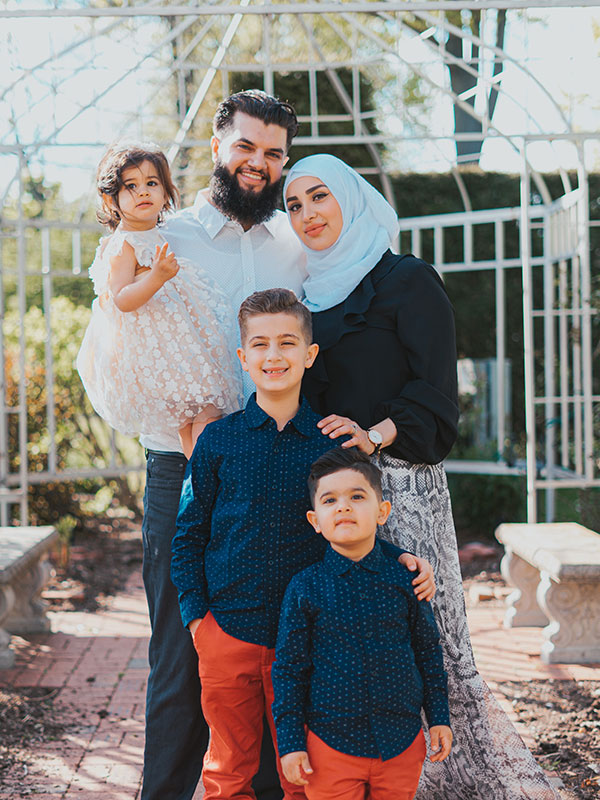
The Canadian context of anti-Muslim racism
- (PDF file) Media (external link) : Analyses of Canadian and US media have concluded that Islam and Muslims receive disproportionately negative coverage, quantitatively (the amount of coverage) and qualitatively (Muslim perpetrators are more likely to be defined as “terrorists,” represented as having more violent motives, linked in media reports to larger terror networks and broader patterns of ideological violence, and labeled by their religious and ethno-racial identities).
- (PDF file) Counter-radicalization Programs (external link) : Counter-radicalization programs attempting to prevent “radicalization” to violence have been operating at a municipal level in Calgary, Toronto, and Montreal and at the Federal Centre for Community Engagement and Prevention of Violence since 2017. Experiences from counter-radicalization in other countries produce serious cause for concern about the formulations founded on anti-Muslim racism and impacts of such programs. Muslim organizations in Canada are regularly approached by security agencies about cooperating in counter-radicalization programs, although neither the empirical bases for these programs nor data tracking their targets and effects have been disclosed, leaving room for concern as similar programs have been based on problematic and partial studies.
- Law targeting Muslim women: In Québec during 2019, the Laicity Act (Bill 21) was passed which precludes public sector employees from wearing visible religious symbols. In turn, this prohibits Muslim women’s coverings such as hijabs and niqabs.
- (PDF file) Anti-Muslim incidents reported across Canada: (external link) There were 349 police report hate crimes against Muslims in 2017 and 173 in 2018. The number of anti-Muslim hate crimes more than tripled between 2012 to 2015, although overall hate crimes declined. These statistics are incomplete, as only a small portion (approximately one-third) of hate acts are reported and hateful incidents that are not deemed as hate crimes are not systematically recorded and tracked.
- Anti-Muslim terror attack in London, Ontario: (external link) On June 6, 2021, a Muslim Pakistani-Canadian family was rammed by a pickup truck at an intersection. The targeted attack resulted in the murder of three adults and a teenage girl and in the hospitalization of a nine-year-old boy, who was left orphaned. This horrific tragedy resulted in a call for a National Summit on Islamophobia (external link) where Muslim communities were able to identify concrete ways to combat anti-Muslim racism across the country.
- In January, 2023 the Prime Minister appointed Amira Elghawaby (external link) as Canada’s first Special Representative on Combatting Islamophobia.
National Day of Remembrance of the Québec City Mosque Attack and Action Against Islamophobia (January 29)
- The National Day of Remembrance of the Québec City Mosque Attack and Action Against Islamophobia (January 29) commemorates the six Muslim Canadians who were killed—along with many who were injured—at the Islamic Cultural Centre in Quebec City in a hate-motivated attack.
- The day serves as an important reminder that acts of anti-Muslim racism and Islamophobia are still prevalent in our society today. It is our collective responsibility to combat anti-Muslim racism and all forms of racism.
Facts and figures on anti-Muslim racism
According to the Angus Reid Institute (external link) :
- 46% of Canadians have an unfavourable view of Islam and clothing associated with the religion compared to other religions.
- 52% of Canadians feel that Muslims can only be trusted “a little” or “not at all.”
- 42% of Canadians think discrimination against Muslims is “mainly their fault.”
- 47% of Canadians support banning headscarves in public (compared with 30% of Americans).
- 51% of Canadians support government surveillance of mosques.
- 55% of Canadians think the problem of anti-Muslim racism is “overblown” by politicians and media, and only 29% supported a non-binding parliamentary motion (M-103) to condemn and study anti-Muslim racism.
- Fewer than half of Canadians would find it “acceptable” for one of their children to marry a Muslim–lower than for any other religious group.
How to combat and confront anti-Muslim racism
Recognize that Islamophobia is a form of discrimination that is rampant in today’s society
- The first step towards combatting and confronting anti-Muslim racism is to acknowledge that Islamophobia is a form of racism perpetrated against Muslims and/or those who might look like Muslims. It is rampant in today’s society and it is our collective responsibility to confront it.
- Explore structural barriers that exacerbate anti-Muslim racism, for instance, marginalization, othering and media portrayals.


Educate yourself on anti-Muslim racism and Islamophobia
Increase your knowledge with accurate information about anti-Muslim racism. Suggested resources to explore:
- Combatting Islamophobia in Canada (external link) (Government of Canada)
- Combatting Hate: Islamophobia and its impact on Muslims in Canada (external link) (Senate of Canada)
- Discrimination experienced by Muslims in Ontario (external link) (Ontario Human Rights Commission)
- Islamophobia (external link) (City of Toronto)
- Islamophobia 101 – Part 1 and Part 2 (TorontoMet Today)
- Generous Futures: Combating Islamophobia (Toronto Metropolitan University)
Build relationships with Muslim people
Highlighting Gordon Allport (external link) ’s intergroup contact theory, make an effort to build genuine and authentic relationships with Muslim people. Allport’s theory states that getting in contact with people deemed the ‘other’ can help to reduce prejudice and biases if certain conditions are met, including: equal status, having a common goal, mutual cooperation, and institutional support.


If it’s safe to do so, confront and call-out anti-Muslim racism
- If you witness or encounter anti-Mulsim racism, whether online or in-person, and if it is safe to do so, speak up to support the victim and denounce the act.
- Call for help if needed.
- If you encounter anti-Muslim racism on social media, report it to the platform.
- If a hate crime has occurred, report it to the police (external link) .
Resources at TMU
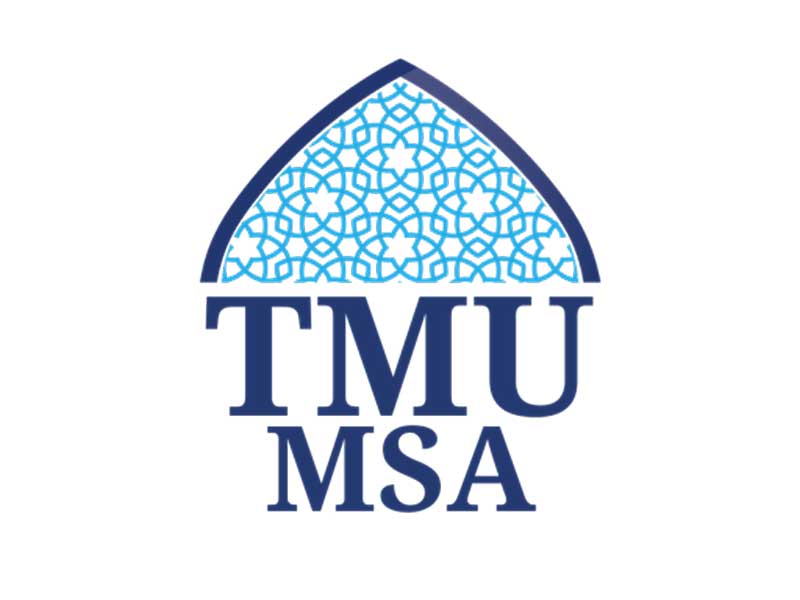
The Muslim Students' Association is student-led religious and social group catering to the Muslim and non-Muslim society at TMU. Their aim is to educate the TMU community through exciting social events.
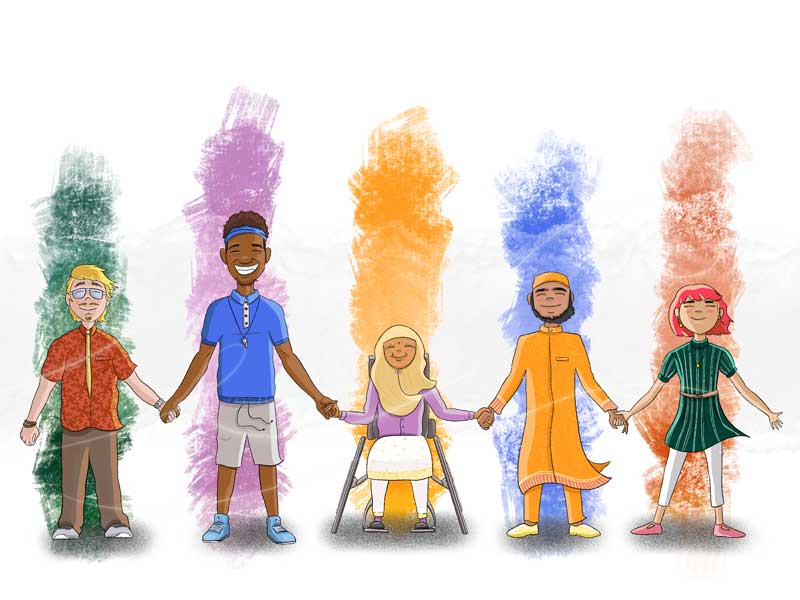
The Muslim Employee Community Network is a group of Toronto Metropolitan University employees who identify as Muslim, working together to foster an environment of mutual respect and awareness.
- Canadians for Justice and Peace in the Middle East. (n.d.). Islamophobia. Retrieved from https://www.cjpme.org/islamophobia
- City of Toronto. (n.d.). Islamophobia. Retrieved from https://www.toronto.ca/community-people/get-involved/community/toronto-for-all/islamophobia/ (external link)
- Government of Canada. (n.d.). Combatting Islamophobia in Canada. Retrieved from https://www.canada.ca/en/canadian-heritage/campaigns/combatting-islamophobia-canada.html
- Islam. (2018, January 5). History.com. Retrieved from https://www.history.com/topics/religion/islam
- Kanji, A. (2017, November 10). Islamophobia in Canada . Noor Cultural Centre. Retrieved from https://noorculturalcentre.ca/wp-content/uploads/2018/01/Islamophobia-in-Canada-2017.pdf
- McLeod, S. (2023). Allport’s intergroup contact hypothesis: Its history and future. Simply Psychology. Retrieved from https://www.simplypsychology.org/contact-hypothesis.html (external link)
- National Day of remembrance and action against Islamophobia. UFCW Canada - Canada's Private Sector Union. Retrieved from https://www.ufcw.ca/index.php?option=com_content&view=article&id=32884&Itemid=2497&lang=en
- Noor Cultural Centre. (n.d.). Islamophobia in Canada: Educational Resources. Retrieved from https://noorculturalcentre.ca/islamophobia-in-canada-educational-resources/ (external link)
- Ontario Human Rights Commission. (2012). Discrimination Experienced by Muslims in Ontario. In Creed, Freedom of Religion and Human Rights: Special Issue of Diversity Magazine, Volume 93, Summer 2012. Retrieved from https://www.ohrc.on.ca/en/creed-freedom-religion-and-human-rights-special-issue-diversity-magazine-volume-93-summer-2012/discrimination-experienced-muslims-ontario (external link)
- Senate of Canada. (n.d.). Islamophobia in Canada: Annual Report. Retrieved from https://sencanada.ca/en/info-page/parl-44-1/ridr-islamophobia/ (external link)
- Souissi, T. (2021, September 9). Islamophobia in Canada. The Canadian Encyclopedia. Retrieved from https://www.thecanadianencyclopedia.ca/en/article/Islamophobia
- The Conversation. (2021, June 8). Muslim Family Killed in Terror Attack in London, Ontario: Islamophobic Violence Surfaces Once Again in Canada. Retrieved from https://theconversation.com/muslim-family-killed-in-terror-attack-in-london-ontario-islamophobic-violence-surfaces-once-again-in-canada-162400 (external link)
- Toronto Metropolitan University. (2021, November 9). Generous Futures: Combating Islamophobia [Video]. Youtube. https://www.youtube.com/watch?v=wQSiw2O2bHQ (external link)
- Zavaid, A. (2023). Explained: What is the difference between Sunni and Shia Muslims? Jagran Josh. Retrieved from https://www.jagranjosh.com/general-knowledge/difference-between-sunni-and-shia-muslims-1634720495-1 (external link)